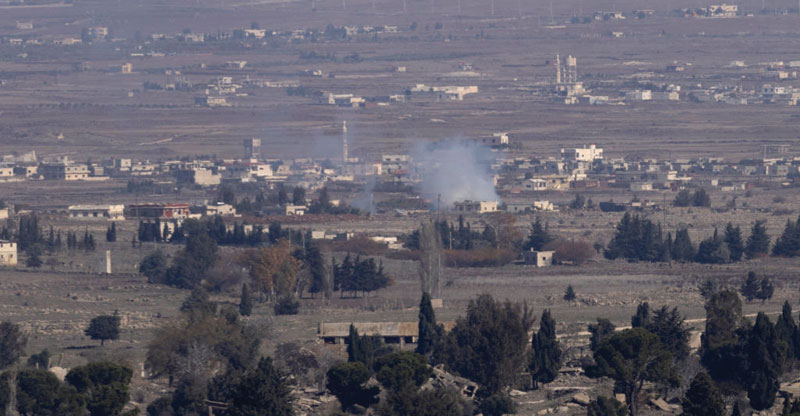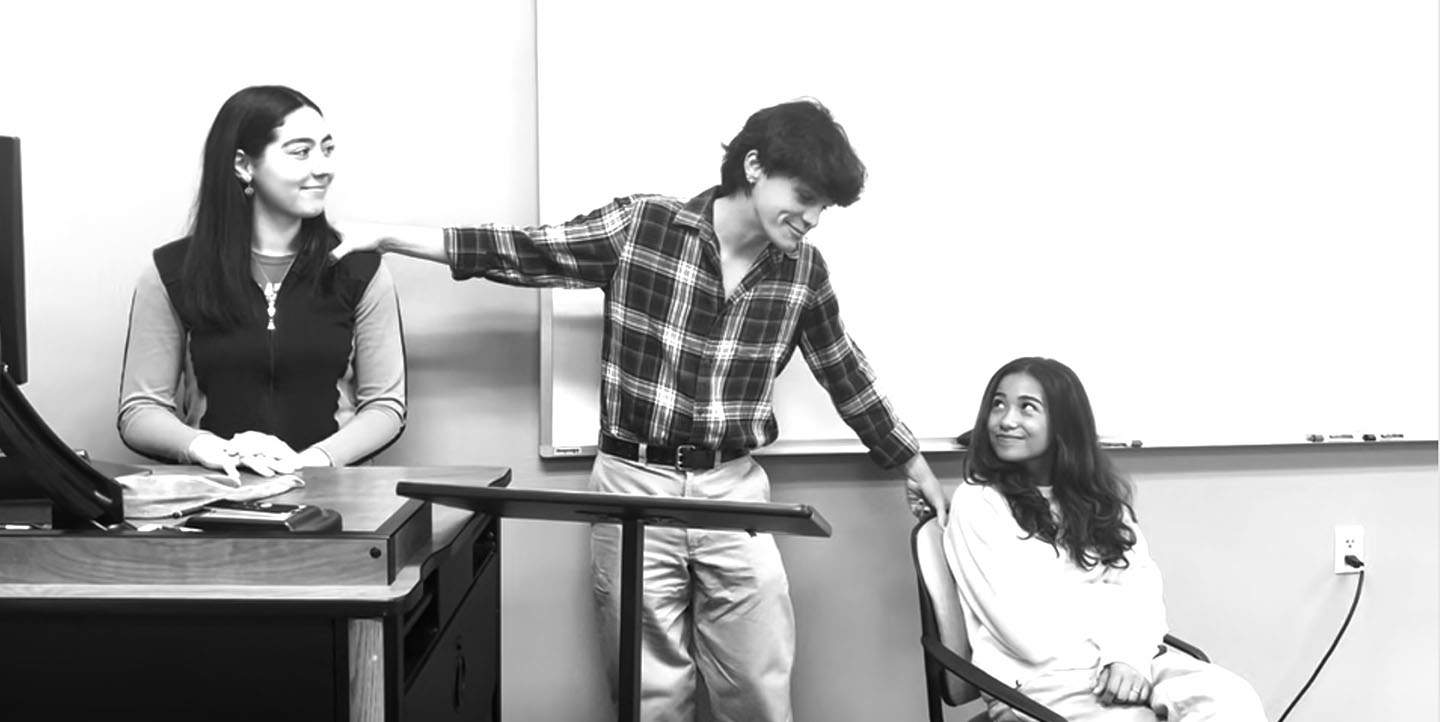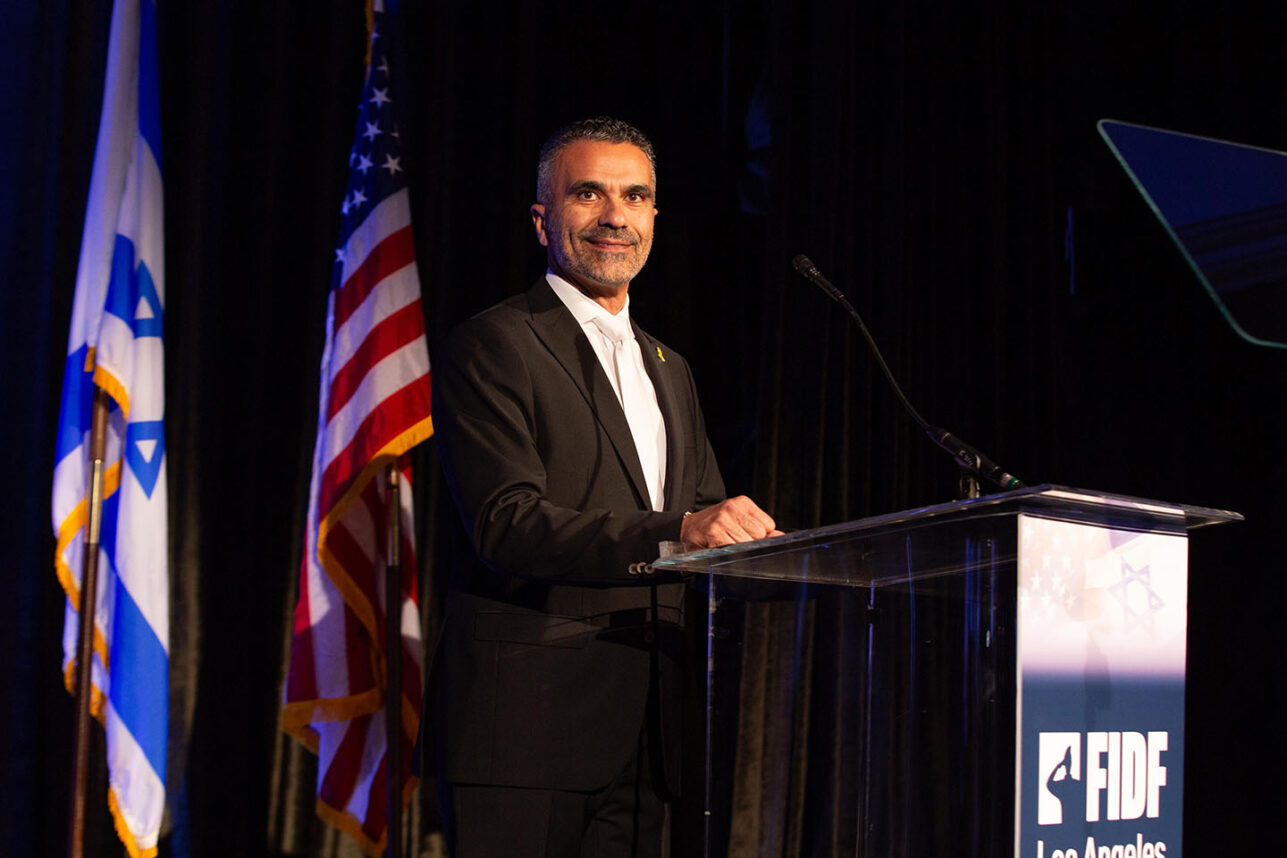Tashbih Sayyed told me he has cried three times in his adult life: once when his father died, once when his mother died and once when he had to sell his house.
Sayyed was born in India in 1941 into a Shiite Muslim family. After the 1948 partition, his family, feeling persecuted by the Hindu majority, fled to newly created Pakistan. There, Sayyed received his master’s degree in political science, and started his career as a journalist. He eventually became the founding director of Pakistan television’s current affairs programming, the Don Hewitt of Karachi. But his liberal views put him in conflict with the Zia al-Haq regime, and Sayyed immigrated to the United States in 1981.
He worked as a translator and ghost writer for several years, and eventually saved enough money to realize one of his American dreams: he and his wife, Fatima, bought a large five-bedroom house in Laguna Hills.
Sayyed founded his own paper, Pakistan Today, in 1991. The paper survived on donations from fellow Muslims, newsstand sales and advertising. The Sayyeds produced it from a room in their house, using stringers in South Asia, wire services, local columnists and writers. At the paper’s peak, about five years ago, Sayyed said he printed 30,000 copies and broke even on a weekly budget of about $10,000.
Then Sayyed began to, as he put it, "veer from the right path." He wrote an editorial condemning "anti-Zionist governments" for having a hand in the 1994 bombing of a Jewish community center in Argentina that killed 87 people. He published quotes from Jewish communal leaders like Rabbi Marvin Hier of the Simon Wiesenthal Center. "My dream was to provide a platform to the Islamic community for other opinions," he said. He printed Op-Ed pieces by pro-Israel columnists.
And he didn’t stop there. The American Jewish Committee (AJC) published two handbooks, one by a Jewish scholar explaining Judaism for Muslims, one by a Muslim scholar, Dr. Khalid Duran, explicating Islam for Jews. "Children of Abraham: An Introduction to Islam" outraged Muslim groups for taking a critical look at current Islamic practices. Sayyed ran two quarter-page AJC ads for the book in Pakistan Today. "It was part of my mission to establish that the other version can be presented to the Muslim community," he said.
Sayyed also went on CBS’s "48 Hours" and told correspondent Bob Simon that Arab threats against terrorism expert Steven Emerson were real and credible. The mainstream Arab community reviles Emerson, author of "American Jihad" (Free Press, 2002). The backlash was immediate. "Brother," Sayyed said one Arab leader told him, "now you are HIV positive."
Within a month, Pakistan Today’s advertising revenue fell from $4,000 per week to $350 (the sole remaining advertisers are two Hindu store owners). Muslim-owned stores stopped carrying his paper. Sayyed said he received "veiled physical threats." His contributors threatened to stop payments unless he ran a full-page apology — on the front page. When he refused, the money dried up.
Faced with $3,200 in weekly bills he could no longer pay, Sayyed had to decide whether to close the paper, or sell his house. "My wife understood," he said. He dabbed at tears in his eyes. "I apologize. It broke me."
The Sayyeds now produce Pakistan Today out of a small, rented house in Fontana. He still struggles to pay the printer and wire service bills, and his circulation has dropped to 4,000. (U.S. Census Bureau figures put California’s Pakistani population at 20,093, though Pakistanis I spoke to believe there are tens of thousands more). Pakistan Link, the largest national Pakistan weekly, publishes 25,000 copies per week.
Sayyed acknowledges that in pushing unpopular opinions he has created — surprise — an unpopular paper. Others in the Muslim community say he is simply too far outside the pale to make a difference. "Our goal is to build bridges of understanding," Akhtar Faruqui, editor of the Irvine-based Pakistan Link told me. Faruqui’s editorials have spoken approvingly of Seeds of Peace, a program that promotes Palestinian and Israeli coexistence. Faruqui, whose paper does reflect many moderate and liberal ideas, said he received no negative response for supporting Seeds of Peace, but he said he wouldn’t publish some of the opinions found in Pakistan Today, such as Op-Ed pieces critical of the Saudi royal family. "We try to promote understanding," Faruqui said. "We don’t go to extremes. That would be too extreme."
Publishing such pieces has pushed Sayyed to the fringes of the local Muslim community, said Salam al-Marayati, executive director of the Muslim Public Affairs Council. "Every religion has its extremist fringe," Marayati said. "We believe mainstream moderates represent the mainstream of the faith. The extremist fringe has been given way too much public attention by people whose political purpose it serves."
Marayati said that several years ago, Aslam al-Abdullah, editor of the local Muslim magazine, The Minaret, shaved his beard to protest the takeover of Afghanistan by the Taliban. For that he received threats and negative letters. "Everybody goes through this," Marayati said, "for some it’s more of a story." Sayyed accused Marayati of being a Muslim extremist in Western clothes.
Sayyed’s story has prompted some Los Angeles Jewish donors to send some money his way. Their involvement comes at a time when Western observers, from the State Department to New York Times columnist Tom Friedman, have come to realize that Islamic extremists — the popular term is Islamists — can only be defeated by Islamic moderates. Look to Iran, wrote Friedman in his Wednesday column, where the success of moderate Muslims in defeating Islamism could prevent a war between Islam and Western civilization.
Sayyed sees himself as a solider on the side of moderation, and his Jewish supporters agree. "We have to support the voices like his," one donor, who requested anonymity, told me.
Consequently, Muslims accuse Sayyed of selling out to the Jews. Sayyed laughed off the charges. "I said if I were open for sale, why wouldn’t I be for sale to the Saudis?" he said. "A friend came to me and said, ‘Who’s supporting you?’ I said, ‘Americans.’"






















 More news and opinions than at a Shabbat dinner, right in your inbox.
More news and opinions than at a Shabbat dinner, right in your inbox.